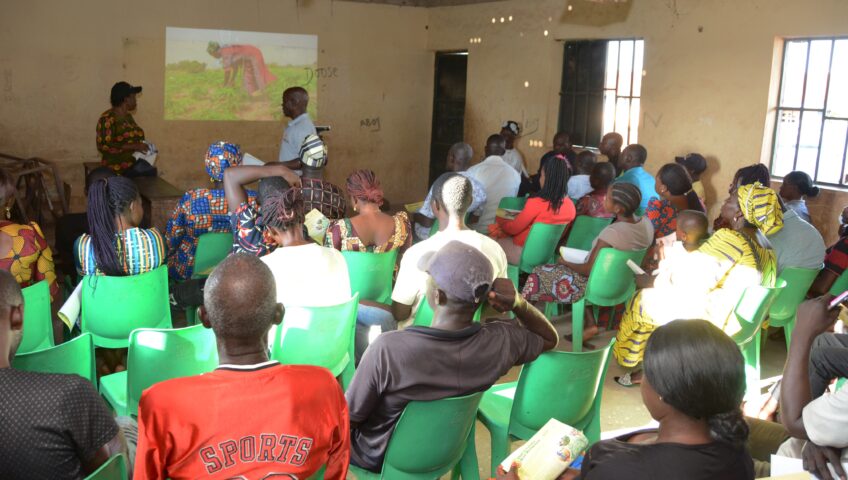The various digital tools developed by the International Institute of Tropical Agriculture (IITA) to scale agronomic recommendations and help farmers improve productivity are currently changing the face and practice of agricultural extension in Nigeria and Africa as a whole.
This assertion was made recently by the IITA Digital Extension and Advisory Services Specialist, Godwin Atser, while delivering his contract review seminar titled: “Digital disruption in the scaling of the Six Steps to Cassava Weed Management & Best Planting Practices toolkit.”
During the seminar, Godwin took his online audience through vivid explanations of how the digitization of the project’s Six Steps to Cassava Weed Management toolkit, created by the IITA Cassava Weed Management Project, was revolutionizing the art, science and practice of dissemination and agricultural extension services.
The Six Steps to Cassava Weed Management and Best Planting Practices toolkit, popularly called “Six Steps” is a complete package that addresses all aspects of good agricultural practices in cassava production, which is helping farmers to double their cassava yield to more than 20 tons per hectare from the current national average of 9 tons per hectare. The toolkit prescribes best bet practices in site selection, weed identification, herbicides application, tillage operations, weed management, plant spacing, post-emergent weed management and cassava agronomy principles. The Six Steps have been fully integrated into AKILIMO, a comprehensive digital advisory service for cassava.
According to Godwin, some of the digital tools created to scale out the “Six Steps” include: the IITA Herbicide calculator, an app which helps farmers and spray service providers to estimate correctly, the amount of herbicides to be added to knapsack sprayers to prevent herbicides overdose or under-dose; the Cassava e-market, an online market place on the Cassava Matters website for cassava and cassava-related commodities, and an interactive voice recording (IVR) service powered by Viamo where farmers simply dial 3-2-1 on Airtel network for cassava cultivation tips. Others are video clips of the recommendations which extension agents are currently using in rural areas with the aid of battery-powered mobile projectors given to them by the project and radio programs about cassava farming currently being aired in English, Yoruba and Tiv languages on some of the most popular radio stations in Benue and Oyo States.
The Knowledge Exchange expert stressed that now that economies and food systems were being threatened by COVID-19 challenges, “these digital tools for scaling the Six Steps can help us navigate through the challenges of COVID-19 since restrictions to free movement and human to human contact can be by-passed with the use of digital technology.”
On his future plans, the dissemination guru said he looked forward to scaling the Six Steps toolkit and the digital tools already developed by IITA and working on the integration of digital platforms being developed by other projects in the institute.
“These will be done in the framework of the African Cassava Agronomy Initiative (ACAI),” he said.
The CWMP was led by foremost researcher and IITA Director for Development and Delivery, Dr. Alfred Dixon with renowned weed scientist, Prof Friday Ekeleme, as Principal Investigator. Godwin led the communication, knowledge exchange and digital extension component of the project.

